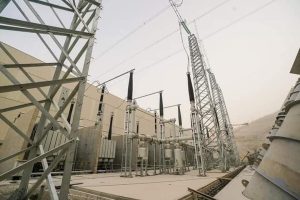 By Zahid Jadwat
By Zahid Jadwat
23:02:2022
In a significant move, Ethiopian Prime Minister Abiy Ahmed inaugurated the hydropower plant at the controversial Grand Ethiopian Renaissance Dam (GERD) on Sunday, heralding a new age for electricity production. But neighbouring countries see the plant as a threat to water security.
Egypt and Sudan, located downstream on the River Nile, depend heavily on the River for their water supply.
The Egyptian foreign ministry accused Ethiopia of “persisting in its violations” of a deal between the three nations. The preliminary agreement, signed in 2015, prohibits any parties from taking unilateral actions to use the river’s water.
However, Addisu Lashitew, a non-resident fellow in the Global Economy and Development program at the Brookings Institution, said there had been no agreement on the shared utilisation of the river.
“The dispute on the use of the Nile is an ongoing issue that is centuries old, and there has not been an agreement on the shared utilisation of the Nile. Egypt and Sudan have an agreement on the utilisation of the Nile, but Ethiopia has not been included in those agreements. Ethiopia is unsettling the status quo and trying to gain a fair share in the Nile waters,” he told Radio Islam.
As Ethiopia seeks to boost its electricity supply, the two neighbours fear Ethiopia’s $4.2bn megaproject could cause water shortages downstream. The Ethiopian leader promised no harm in the country’s quest for electricity supply.
“As you can see, this water will generate energy while flowing as it previously flowed to Sudan and Egypt, unlike the rumours that say the Ethiopian people and government are damming the water to starve Egypt and Sudan,” he said at the inaugural ceremony.
Lashitew said one of the major concerns of Egypt and Sudan is water security in the potential instance of drought.
“Egypt wants to make sure that Ethiopia releases a certain minimum flow from the new dam, but Ethiopia wants to ensure that droughts should be managed in a responsible and shared manner,” he said.
Another bone of contention in Ethiopia’s megaproject is how future disputes would be resolved, said Lashitew.
“Egypt wants a binding agreement that’s internationally binding, and Ethiopia prefers a more political process where conflicts are not resolved legally, but rather the countries work out the solution when disputes arrive.”







0 Comments